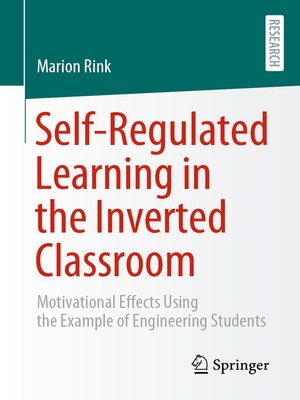Self-Regulated Learning in the Inverted Classroom
ebook ∣ Motivational Effects Using the Example of Engineering Students
By Marion Rink

Sign up to save your library
With an OverDrive account, you can save your favorite libraries for at-a-glance information about availability. Find out more about OverDrive accounts.
Find this title in Libby, the library reading app by OverDrive.



Search for a digital library with this title
Title found at these libraries:
| Loading... |
The Inverted Classroom is a blended learning scenario that consists of two phases: In the Online Phase the learners acquire learning content using interactive learning materials, primarily videos, provided by the teacher online. In a second stage, there is an Attendance Phase at the higher education institution with the purpose of learners processing, practising and deepening their understanding of what they have already learnt in a class with other stakeholders.
Based on the Self-Determination Theory of Richard M. Ryan and Edward L. Deci, this qualitative study examines how learning in the Inverted Classroom affects the basic psychological needs of autonomy, competence and relatedness of higher education engineering students. A central aspect is the promotion of the students' intrinsic learning motivation through support measures and appropriate didactical design.






